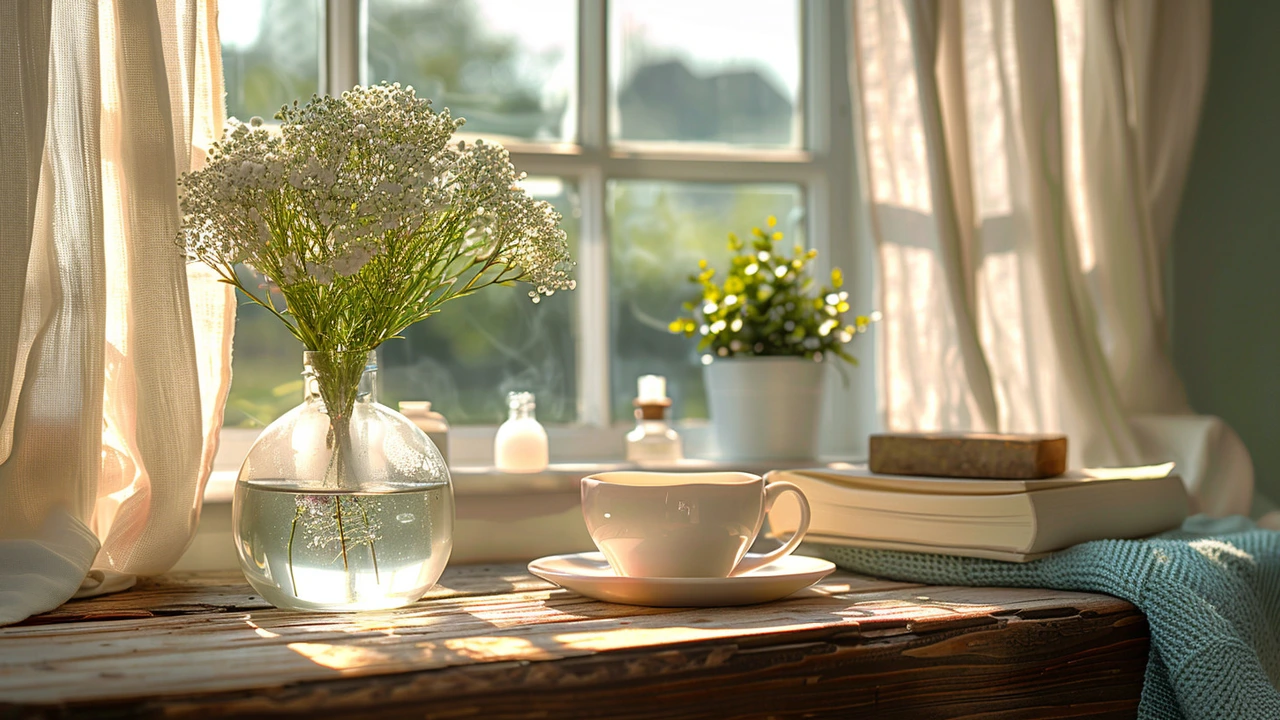Aromatherapy Health Benefits: How Essential Oils Help Your Mood, Sleep, and Pain
You can use aromatherapy at home with a diffuser, a few drops on your pillow, or in a carrier oil for massage. It works fast for mood shifts, helps sleep patterns, and can reduce mild aches. You do not need complicated routines.
Main Benefits and How to Use
First, calming oils like lavender, bergamot, and frankincense lower stress and help when you feel anxious. Studies show lavender often reduces pretest and preprocedure anxiety. Try three drops in a diffuser or inhale from a tissue for a few minutes when stress spikes.
For sleep, lavender or chamomile on your pillow or in a bedroom diffuser calms the mind and can improve sleep quality. Clinical trials have found small but real gains in sleep length and depth with lavender.
For muscle pain and mild inflammation, peppermint, eucalyptus, and ginger work well when mixed with a carrier oil and used in massage. Mix two to three drops per tablespoon of carrier oil and test on a small skin area first. Inhaled oils also help breathing when eucalyptus or rosemary are used in steam for congestion.
Safety Tips
Essential oils are strong and need care. Never put undiluted oil directly on skin except for short aromatherapy inhalation tests. Keep oils away from eyes and mucous membranes. If you are pregnant, nursing, have epilepsy, or serious health conditions, ask your doctor before use. Patch test new blends on the inside of your wrist and wait twenty four hours for reactions.
Start simple. Pick two oils you like and rotate them by week. Use a diffuser for twenty to forty minutes in a room to avoid headache or nausea. For massage, warm your carrier oil and blend three drops per tablespoon of carrier oil for adults. If a scent feels too strong, open a window or stop use.
Lavender is the most versatile for calming, sleep, and low anxiety. Peppermint eases headaches and muscle tension when diluted and rubbed on the temples or neck. Eucalyptus helps clear airways and soothe chest tightness when used in steam or vapor. Citrus oils like orange or bergamot lift mood and feel bright in short bursts.
Keep small bottles out of direct sunlight and store them sealed in a cool place. Try a simple bedtime routine: diffuse lavender for thirty minutes before bed, dim lights, and put your phone away. Use aromatherapy to support care plans, not replace medical treatment. If you want stronger results, ask a licensed aromatherapist for specific blends and doses.
Quick recipes: Calming sleep blend: three drops lavender plus two drops chamomile in a diffuser. Focus pick-me-up: two drops rosemary plus one drop lemon in a personal inhaler or diffuser. Muscle rub: two drops peppermint and two drops eucalyptus mixed into one tablespoon of carrier oil.
Always label blends with ingredients and date made. Start low, track effects, and stop if irritation appears. Enjoy scents safely, notice small daily changes in mood and sleep.
Essential Guide to Aromatherapy for Beginners: Discovering the Power of Essential Oils
This article serves as a comprehensive guide for those new to the world of aromatherapy. Discover what aromatherapy is, essential oils and their uses, setting up your aromatherapy practice at home, and the health benefits linked with this ancient practice. This engaging long-read provides beginners with the necessary tools and knowledge to embark on their aromatherapy journey.

